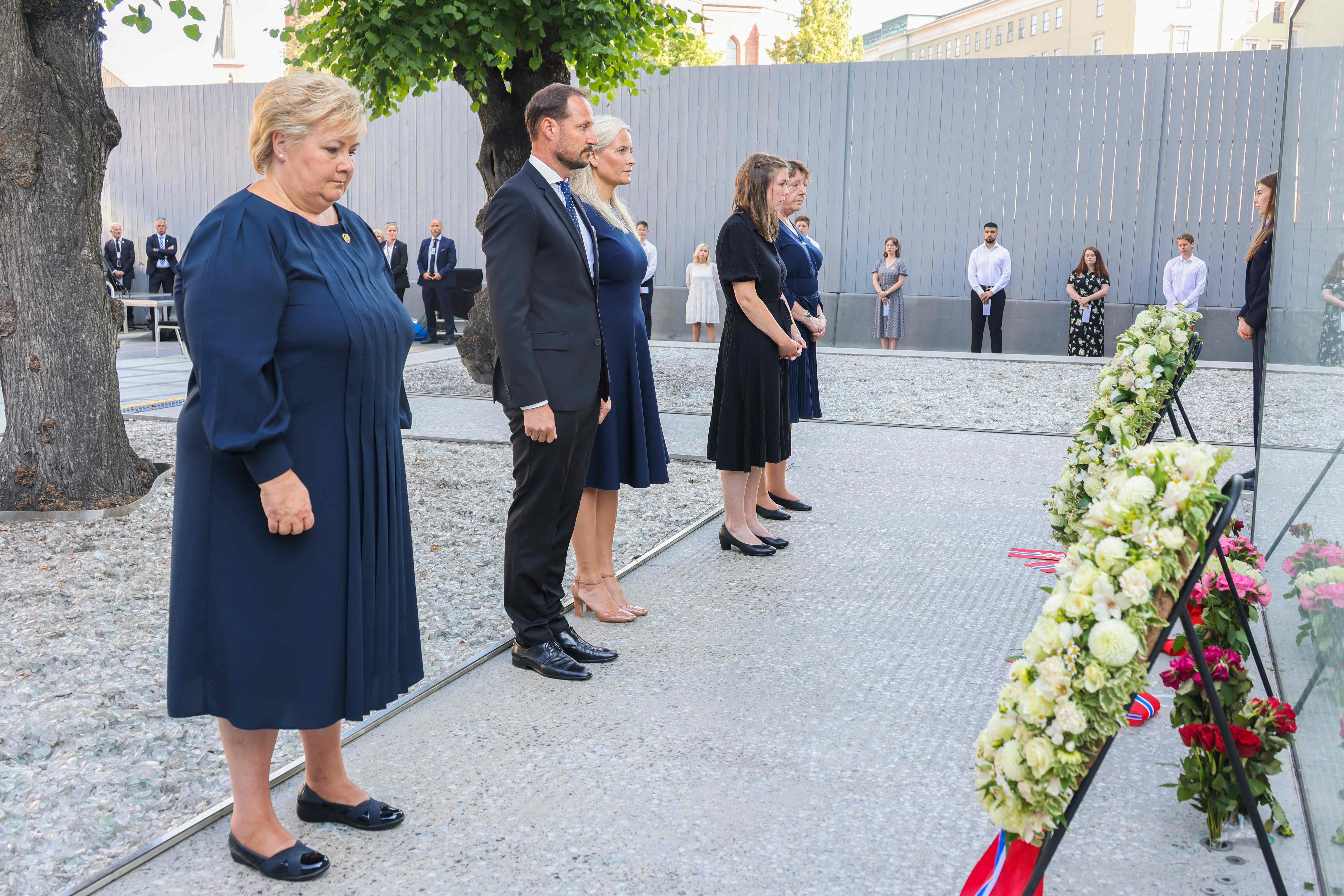Bells sound across Norway as the country holds memorial ten years after the Utoya massacre
PM Erna Solberg said the attack was aimed at the Labour Party and their multicultural ideas

Church bells rang across Norway on Thursday as mourners laid flowers in city centres to commemorate the 77 people who died ten years ago in an attack by far-right extremist, Anders Behring Breivik.
Breivik, a white supremacist, detonated a car bomb outside the prime minister’s office in Oslo, killing eight, before driving to Utoya island and shooting 69 people at a Labour Party youth camp on July 22, 2011.
The day of remembrance started with a memorial service at Oslo’s government quarter, still a building site after Breivik’s bombs blew apart the building which housed the ministry of justice and the prime minister.
Prime Minister Erna Solberg addressed those gathered, including survivors and relatives of the victims, political leaders and Norway’s Crown Prince and Crown Princess.
“It hurts to think back to that dark day in July, 10 years ago. Today, we mourn together. Today, we remember the 77 that never came home,” Solberg said in a speech delivered at the site.
“The terror of July 22 was an attack on our democracy,” she added, before calling for Norwegians to build a “fortified bulwark against intolerance and hate speech, for empathy and tolerance” and “not let hate stand unopposed
She added that the attack was also aimed at the Labour Party and their ideas of multicultural inclusivity.
Debate over the attacks has shifted over the years. Survivors, many of whom were teenagers at the time, are now determined to confront the far-right ideology which was a catalyst for the attack.
This is a departure from Norway’s response at the time, which emphasised unity and consensus, with Jens Stoltenberg, the Labour Party prime minister at the time, calling Breivik’s actions attacks on Norway and democracy.
The leader of the 22 July victims’ support group, Lisbeth Kristine Royneland, said she thought those killed would be sad to know there were still survivors in great need of help, and that the public debate had gone wrong in several ways.
At a service in the Oslo Cathedral, Stoltenberg, now NATO Secretary-General, pointed to recent incidents of far right violence, including continued death threats against the attacks’ survivors.
“Ten years ago we met hate with love. But the hate is still there,” Stoltenberg said. “Again and again we are reminded that democracy has not been won once and for all. We need to fight for it day after day.”
In a commentary published today in Aftenposten, a daily newspaper, Mr Stoltenberg conceded that his bid to unify the country had left the issue of extremism in Norway largely unexamined. A recent report by C-REX, Norway’s centre for extremism research, reveals that 90% of Norwegians think July 22 was just the work of a madman. But Anders Ravik Jupskås of C-REX says online hero-worship of Breivik is as strong as ever.
Later, there will also be a ceremony on Utoya and the day will conclude with an evening ceremony in Oslo during which King Harald will speak.
Breivik, 42, is now serving a 21-year sentence, which can be prolonged indefinitely if he is deemed a continued threat to society.
Additional reporting by Reuters
Join our commenting forum
Join thought-provoking conversations, follow other Independent readers and see their replies
Comments
Bookmark popover
Removed from bookmarks